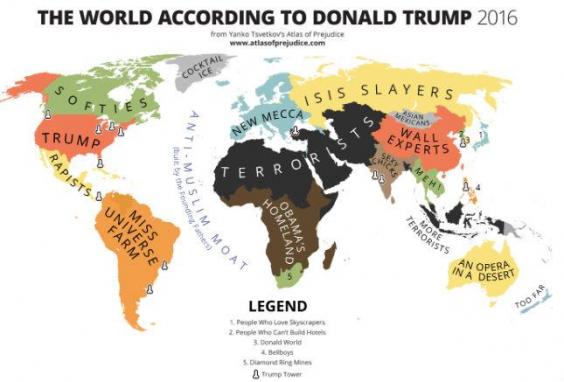Viv S wrote:
I said 'capital' not 'dollars'. And while global capital is not synonomous with the dollar, its not distinct either. Market sentiments across the world are close coupled and tend to drift in the same direction.
And yes we have 'access' to capital, everyone does. No sanctions in play. However what that capital costs us, depends on local risk, specific growth prospects and general appetite for risk in the global market.
It is not a binary choice. Internal free trade (something that no one can argue against) doesn't come at the cost of exports. That we don't buy much or less much is a description of our current state not a justification. For a country with our fundamental cost advantages (and reliance on foreign energy), limited trade that is not a plus.
High growth rates cannot be sustained indefinitely. I think everyone is familiar with Japan's example. And its the Chinese that are tinkering with their economic statistics who need to internalize that.
Nothing to do with India. We very very far reaching our full economic potential.
The West has been 'collapsing' for decades now. If and when it does, the rest of the world will be in the muck with it.
And if a super global recession/collapse were to occur, I'd rather it be later than sooner giving Modi a larger window for his reforms and infra expansion.
If, theoretically, global trade were to collapse tomorrow, China would be worst hit but it would still have its highways, railways, airports, power-plants, schools, universities, cities, factories and skilled workers. The 'West' would have the same or more of it, but India much less.
I think the idea that India can remain aloof from and unaffected by stability in the "West" (which includes most of East Asia too) is a utopian one. Maybe decades from now, if the process of globalization has been reversed, that'll be true. For now, we're still early in the development cycle and still part of a closely interlinked global economy. Both facts that will remain true for the duration Trump's tenure in office.
I agree we have not yet reached our potential but you cant disagree we are on the way. I am not a idealist. I am not a leftist who seeks utopia. Though I do not disagree that sometimes my perspective might come across that way. Why do you think the risk of investing in India has to be borne by outsiders? US dollars are not an end but a means to an end. India would jump at an opportunity to deal directly with any other country in Rupee-other currency swap. It will work in our favor. It will happen irrespectively, even though you feel it seems like a remote possibility.
On BRF, the US based posters are quite condescending about research done in India. So I will post some that is not India based. I recommend reading the research done by Mark Yusko who is CIO at Morgan Creek capital or Robin Griffiths of HSBC global allocation. They say for India to achieve 10% per annum growth rate- they just need to build basic infra. That alone will guarantee 10% growth over the next 20 years minimum.
https://twitter.com/theEUpost/status/779632423474716672
The video in that tweet is very interesting. Angus Maddison has done extensive research on this.
[img]hhttps://upload.wikimedia.org/wikipedia/commons/9/9b/1_AD_to_2008_AD_trends_in_%25_GDP_contribution_by_major_economies_of_the_world.png[/img]
Global trade has already collapsed. Hanjin shipping has already declared bankruptcy. Baltic dry index which tracks global sea freight has cratered. Rigor mortis has set in and we are still talking about globalisation. The future is localisation. Its been the same for time immemorial. The last 100 years experiment notwithstanding.
Someone very rich said just over 150 years ago- he who has gold makes the rules. Indian women by all means own approximately 20000 tons of it. That factor alone makes me confident we are going to be alright. Of course this is my perspective. Only time will tell if that is going to be correct.

